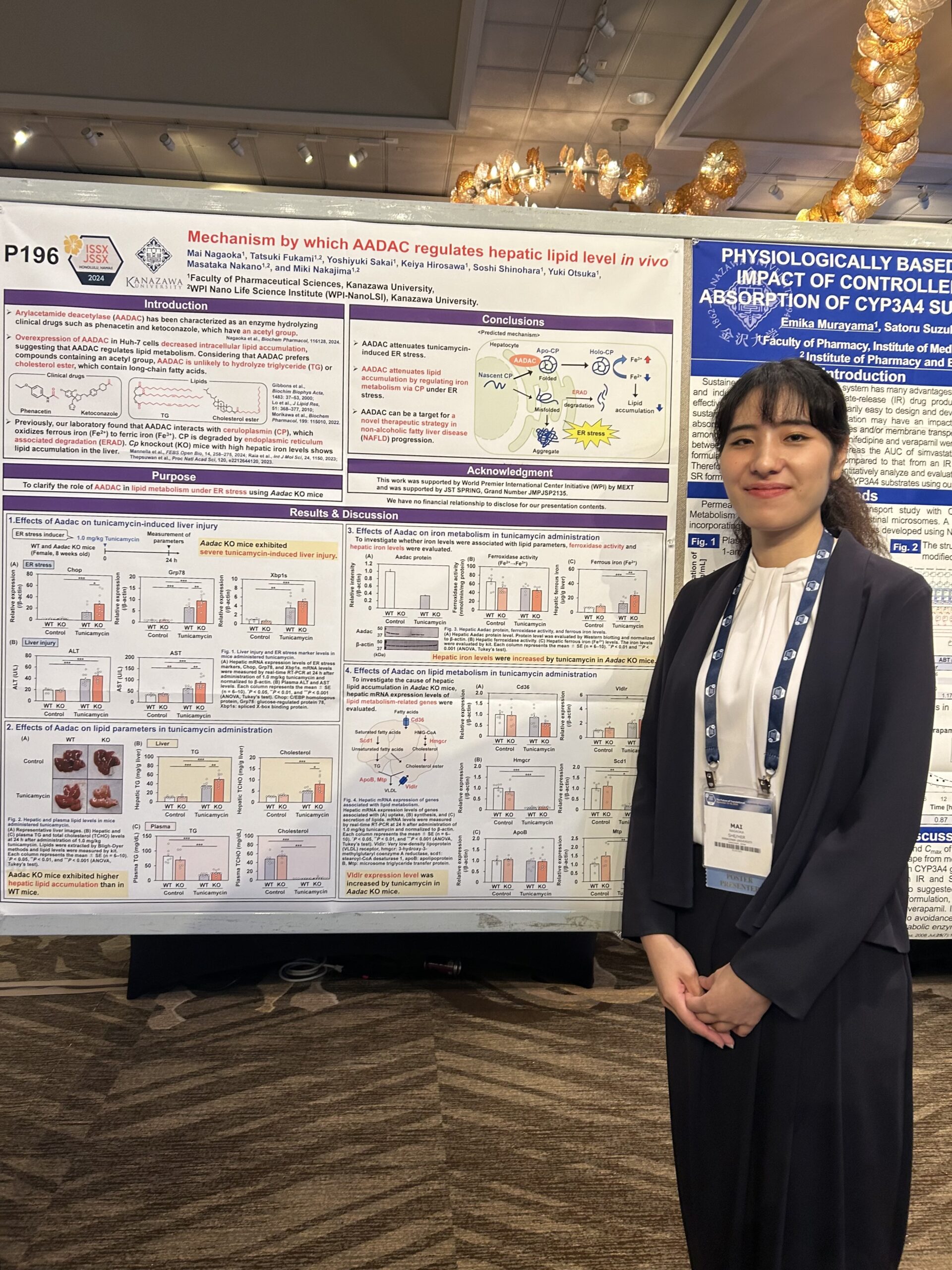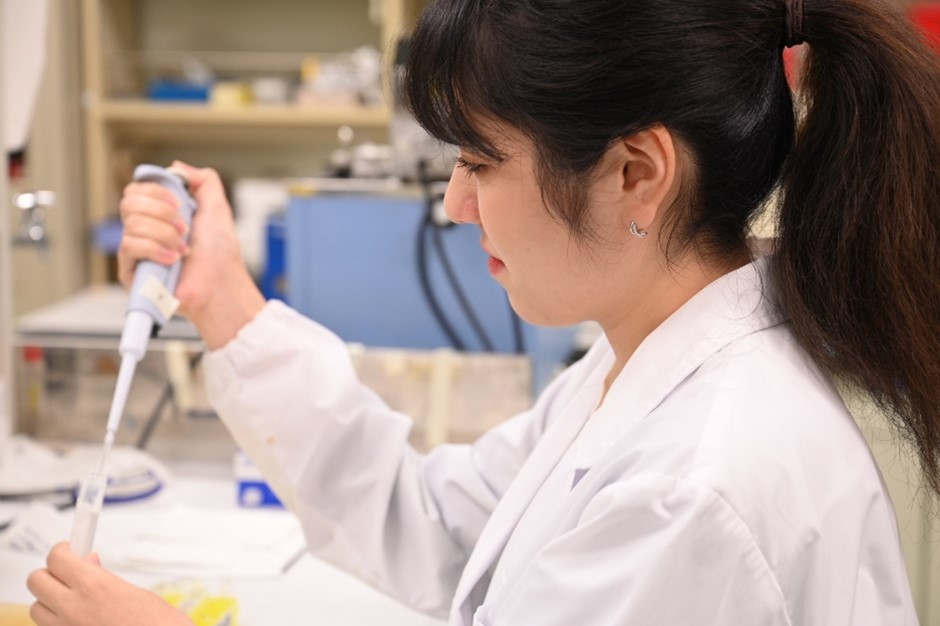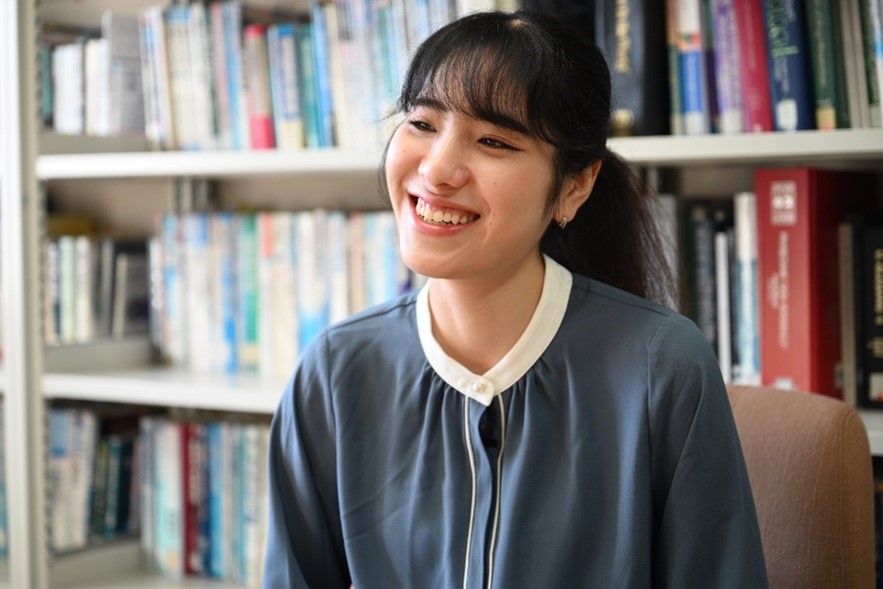We interviewed Mai Nagaoka, a second-year doctoral student (at the time of the interview) in the Division of Pharmaceutical Science at Graduate School of Medical Sciences. As a HaKaSe +selected doctoral student, she is diligently pursuing her doctoral degree. She shared with us the appeal of the doctoral course and what makes her research fulfilling.
To begin with, what made you decide to pursue a doctoral course?
One major turning point was when a paper I submitted during my master’s course was accepted for publication in an academic journal. The experience made me realize how enjoyable research could be. It motivated me to continue into the doctoral course and delve deeper into research. Many of my senior members in my lab were also pursuing PhDs, and several of my peers were planning to do the same, which naturally led me to start thinking about following the same path.

Did you have any financial concerns about entering the doctoral course?
Not really. I had very few concerns about finances. Senior lab members were receiving financial support through the HaKaSe+, and with advice from my professors, I learned early on during my master’s course that Kanazawa University has a strong systems of financial support for graduate students. In my case, since I had already decided to continue into the doctoral course, I was pre-selected for HaKaSe+during my master’s course and received a full tuition waiver. Now, as a HaKaSe+ selected student in the doctoral program, I receive the scholarship, which greatly helps me to focus entirely on my research without working part time.

Could you tell us about your study?
I study proteins known as drug-metabolizing enzymes. When we take medicine, for instance, it changes its structure in the body. This process is called drug metabolism, and drug-metabolizing enzymes are responsible for these reactions. My research focuses on investigating how these enzymes function.
What moments in your research do you find most enjoyable?
Even when people take the same medication, the effects and side effects can vary from person to person. There’s also something called drug–drug interactions, where combining medications can enhance or reduce their effects—or even cause unexpected side effects. One of the key factors behind these phenomena is the drug-metabolizing enzymes. Many questions, remain unanswered, such as why people respond differently to the same medicine or why some experience side effects. I find it exciting and rewarding to take on these complex challenges through my research.
Do you ever struggle with getting results?
Yes, that happens a lot. In fact, things often don’t go as planned in research, but that’s exactly why it feels so rewarding when things finally work out. It can be tough when experiments don’t produce the expected results, and I have to try different approaches. However, I find those moments fulfilling—when I’m exploring various strategies and deeply immersed in the process.

Finally, could you share your dreams for the future?
To be honest, I’m not entirely sure how far my current research will directly contribute to actual drug development. But I’m committed to working hard on my doctoral research and aim to publish my findings in a scientific paper. In the future, I hope contribute to research and development at a pharmaceutical company. I believe the research skills, scientific knowledge, and perseverance I’ve developed through the doctoral course will serve me well in that role. It would mean a great deal to me if a medicine I help develop could one day make a real difference in people’s lives.
*Note: All affiliations, academic years, and titles mentioned are accurate as of the time of the interview.
(Yuko MITERA, Science Writer)







 PAGE TOP
PAGE TOP